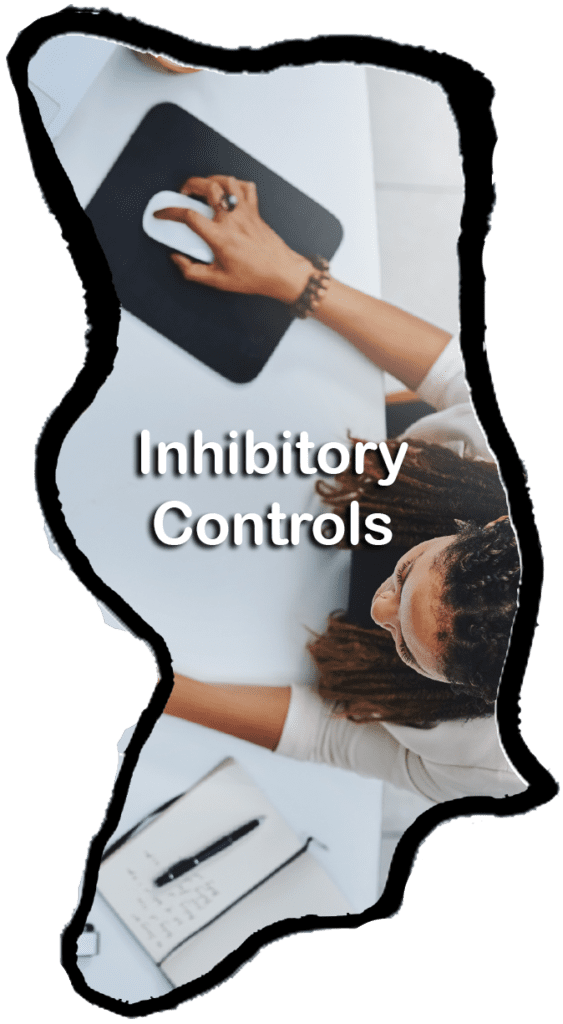What are inhibitory controls?
Inhibitory controls are a key component of executive functions, which are cognitive processes that regulate thought and action. Here are some key points about inhibitory controls:
- Cognitive Regulation: Involved in the regulation of cognitive processes. They allow an individual to suppress or inhibit automatic, dominant, or prepotent responses when necessary.
- Behavioral Control: Play a crucial role in behavioral control, helping individuals to refrain from impulsive behavior and to act in a way that is appropriate to the situation.
- Attention Regulation: Help in the regulation of attention. They enable an individual to ignore irrelevant stimuli and focus on relevant information.
- Role in Learning and Development: Important for learning and development. They are particularly crucial in early childhood, as they enable children to develop self-control, follow rules, and succeed in school.
- Implication in Disorders: Dysfunction in inhibitory controls is implicated in various disorders, such as Attention Deficit Hyperactivity Disorder (ADHD), where individuals struggle with impulse control and focusing attention.
How do inhibitory controls impact success?
Inhibitory controls, as a key component of executive functions, significantly impact success in various areas of life. Here’s how:
- Academic Success: Help students stay focused during lessons, ignore distractions, follow instructions, and control impulsive behaviors. This can lead to better academic performance and success.
- Professional Success: Allow individuals to stay focused on tasks, resist distractions, make thoughtful decisions rather than impulsive ones, and behave appropriately in different professional situations. These skills can lead to better job performance and career advancement.
- Social Success: Play a role in social interactions. They help individuals control impulsive responses, consider the consequences of their actions, and behave in socially appropriate ways. This can lead to healthier relationships and better social outcomes.
- Personal Success: Help individuals achieve their goals, whether it’s sticking to a diet, maintaining a workout routine, or pursuing a personal project. By helping individuals resist distractions and stay focused on their goals, inhibitory controls can contribute to personal success.
- Mental Health: Important for mental health. They help individuals control their emotions, resist negative thought patterns, and cope with stress. This can lead to better mental health outcomes and overall well-being.




